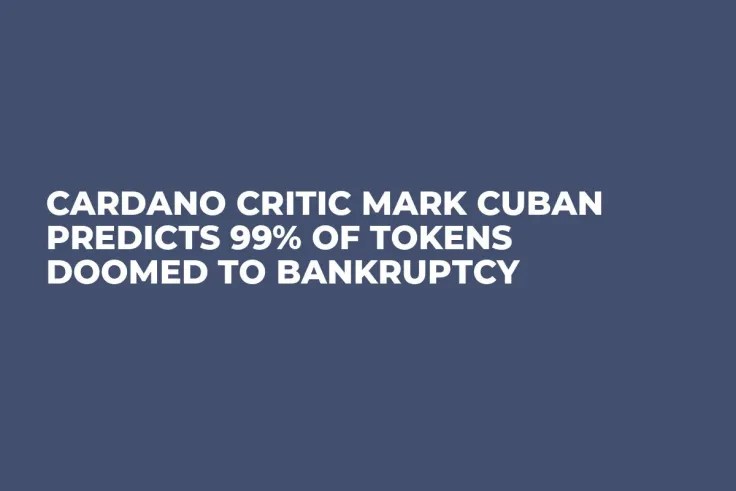Renowned tech mogul and billionaire Mark Cuban recently engaged in a Twitter debate with former SEC authority John Reed Stark, sharing his views on the future of cryptocurrencies and blockchain technology. In a series of thought-provoking tweets, Cuban boldly asserted that a staggering 99% of tokens are destined for bankruptcy, drawing parallels to the fate of early internet and start-up companies.
The billionaire emphasized that while the cryptocurrency industry may experience significant casualties, the remaining winners will undoubtedly become game-changers, as is the nature of technology.
Now we are talking tech. You are in my space John. I don’t comment. I do. My entire career has been people telling me why the companies I started were ridiculous and not needed. Until they found themselves using them.
Smart contracts are about 6 years old. Maybe the name… https://t.co/da2zEvjtHU?from=article-links— Mark Cuban (@mcuban) June 15, 2023
However, Cuban directed his attention to the SEC, emphasizing that its role should be to facilitate funding and support for start-ups while ensuring investor protection. He urged Congress to modify existing exemptions to allow for clearer registration processes and viable paths for cryptocurrency exchanges, as these aspects are not mutually exclusive.
This fiery exchange came in response to Stark's tweet, where he expressed skepticism about the scalability, efficiency and security of blockchain technology. Stark raised concerns about the flawed nature of smart contracts and the absence of redress mechanisms, contrasting them with the regulatory oversight and consumer protections offered by financial intermediaries.
As the crypto industry continues to evolve, only time will tell which predictions hold true and which vision will ultimately shape its trajectory.



 Dan Burgin
Dan Burgin Vladislav Sopov
Vladislav Sopov